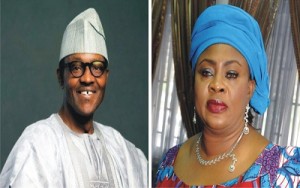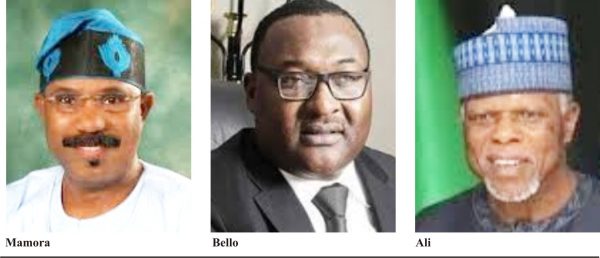Rethinking National Carrier: What Does It Say Of Nigeria’s Leadership?

President Muhamadu Buhari last week issued a directive to the Federal Ministry of Aviation to expedite action towards refloating the Nigeria national carrier.
The President gave the directive after he was briefed on the activities by its permanent secretary, Mrs. Binta Bello at the State House, Abuja. Since then the issue has generated much national interests in aviation circles and among members of the public generally. References were often made to swinging fortunes of the defunct Nigerian Airways Limited, a viable national carrier but beset with multi-dimensional problems which it could not overcome until it finally went down in 2003, amidst protracted operational weaknesses, chief of which was corporate insolvency. At the time it was grounded, it was burdened with a debt of over $60 million, and a fleet of three aircraft, from the high of thirty two.
However beyond the sad saga of the Nigeria Airways, the renewed initiative for a national carrier for Nigeria is a positive development that offers potentially significant dividends to the country. In the first place, the advent of a national carrier will accelerate the growth of the country’s aviation industry, with the possible increase in the scope of resources as well as impetus that will be mobilised into it. Presently the Nigeria aviation sector is still grossly under-developed and therefore contributes less than its expected quota to national development. Even the private sector operators in it are operating with challenging handicaps that diminish their capacity to stay afloat, to say nothing of developing it.
Yet, aviation in the contemporary world has demonstrated its capacity to serve as a catalyst for economic growth and development, given its growing popularity as the safest means of transportation for both regional and long haul purposes. It is a powerful tool for projecting soft-power and means for the promotion of enhanced regional interaction
The prospects of a national carrier will also stimulate development of the idea of the aerotropolis scheme, by which airport locations nationwide will be developed into hubs of aviation-related enterprises, thereby promoting accelerating industrialization in those locations. The advent of a national carrier will further provide jobs, as well as other associated entrepreneurships for the benefit of the immediate benefits of host communities and the entire country.
The issue of ownership and management can be resolved by floating the business on the Nigerian capital market, in order to facilitate joint ownership by both government and private interests, on a basis that must be negotiated. This will facilitate professionalism and effective management practice.
But some stakeholders have responded to the President call for another national carrier. Some believe that a national carrier is desirable while others think it would not work.
In his own reaction NAAPE president, Balami Isaac David hailed the decision. His words: “Everyone who has been in, or around, aviation for a while would easily agree that the ill advised liquidation of the defunct national carrier, Nigeria Airways, is the evil wind that has bedeviled the industry till date.
It was not a mere death of an airline. It was the demise of the only know airline superstructure in Nigeria – the best ensemble of airline professionals. It was the demise of Nigeria’s global standard aircraft maintenance system that had already attained B737 check D (highest maintenance procedure) in Nigeria by Nigerians. It was, therefore, the death of Nigeria’s dream to establish and operate an MRO soonest.
The defunct National Carrier was responsible for the production of well trained aviation professionals – in Piloting, Engineering, Marketing, Cabin Crew, Dispatch, and every facet of aircraft operation. Its death also killed this noble endeavour.
And since the forced liquidation of the Nigeria Airways, no Nigerian Carrier has been able to go near its big shoes. None has even started to move in that direction.
It is, therefore, with enthusiastic welcome that one receives the news of the directive of President Buharito the Ministry of Aviation to expedite action on the establishment of a new national carrier which can now spearhead Nigeria’s deserved quest for global reckoning in aviation.
It is expected that the new carrier will strive for mega carrier status which can compete at the global stage. It is also expected that a full scale MRO will be part of the deal for the new carrier.
It is however important to sound this note of caution. Any idea of engaging a foreign airline, or foreign MRO as technical partner should be banished.
This is because no sane business person will encourage a viable competitor. Nor will such partners agree to terms that will grant advantage to the new carrier overtheir already vested interests in their home airlines.
It is sincerely hoped that the Ministry of Aviation will be open and transparent in the process of setting up the new national carrier, and would allow participation by genuine industry stakeholders.
I and my organization, NAAPE, welcome this development enthusiastically, and we urge all industry stakeholders to support it with all sense of responsibility.”
But the Chief Commercial Officer (Acting Accountable Manager)
Dana Airlines, Obi Mbanuzuo, disagreed with government decision this way: “With no concrete information from the Government, we are unable to make any comment yet although we feel that the Government should create an enabling environment rather than actually running an airline.”
An anonymous airline CEO said: “It is a bad idea”.
Kingsley Chima, an aviation Analyst spoke in the same vein:
“Before this decision/directive, have we done a thorough autopsy on the reasons that led to the death of Nigeria Airways?
National Carrier is going out of fashion in this industry as it has been demonstrated in many quarters.
National carriers succeed in countries were corruption is tightly managed as shown in the case of ET.
When government starts appointing Directors and those start awarding elephant/juicy contracts, the airline will gasp for breath and die.
Running is high cost and any cost that should be avoided has to be avoided. But with National Carrier in an environment like ours, I do not see this happening.
We can only have a competitive National Carrier if and only if;
- We make our airports efficient and effective. This will make transit facilitation a good experience.
- Government involvement must not be beyond 25% share.
- Technical partner owing about 15%
- Institutional investors take the remaining.
I am not optimistic but you never know.”
The Editor-In-Chief of Business Travel Publication Deba Uwadiae, also believed that it would not work unless there change of attitude by Nigerians.
His words: “Very simple, until there is a fundamental attitudinal change towards what belongs to government whatever is set up as a Nigerian government airline, therefore Nigeria Airways, will go the same way of the old airline. As long as I’m yet to see any concrete effort towards that change, I will advise President Muhammadu Buhari not to rush into it. In his last interview on Nigeria Television Authority, he admitted that the stealing of the nation’s crude oil was still going on under his administration.
Nigeria of his old time as Head of State in 1983/85 is not Nigeria of 2015 where an airline can be conjured and it is established. He needs to reach out to former President Olusegun Obasanjo and ask him why Nigeria Airways was liquidated; he needs to reach out to former President Goodluck Jonathan and ask him why his government was unable to set up a national airline. There are a lot of booby traps on that path that will hurt his administration more than he can imagine if he decides to plunge into it.
Though, we need a national airline, at what cost at this point in time, when the Naira is counting at over N220 to $1? There are more fundamental needs for the Nigerian people than the government taking up a humongous project of setting up again a national airline at this time or the next four years of President Buhari.
We need to do more roads and connect remote villages and upcoming towns that will create jobs for people; we need to increase our revenue generation opportunities to improve our per capita income; we need to address the the current policing of the country by decentralizing the police force as presently constituted to a stronger regional force supported by modern techniques of securing such a verse area and population to have a safer environment; we need to reevaluate our educational system to make it more productive than mere academic exercise thereby establishing a stronger base for a better, enduring and endearing Nigeria; and to improve on electricity supplies.
These will make better impact on the lives of Nigerians than a national airline that will take as much as the same fund to achieve these improvement in the lives of the Nigerian people in the next four years.
The present airlines that operate international routes can be devotedly encouraged by ensuring that government officials only travel Nigerian airlines, especially where the journey terminates in the countries where the airlines operate to. A pronouncement by government will will have a huge effect and impact.”
Elder Gabriel Olowo president of Aviation Round Table also condemned the idea by
saying no to another Government Monopoly like FAAN in the sector.
His response: “Nigeria has succeeded in breaking government monoply with their numerous deficiencies in banking ,oil,teleccom and lately in power. It should not stay in Aviation. This same attempt failed woefully under Obasanjo Administration when Virgin Nigeria had couple of preferential advantages over and above other operators .
Among obvious advantages in National Carrier concept and status will be the domiciliation of most lucrative routes, waivers, subsidies, tax exemptions, choice of airport location, etc. Virgin Nigeria was permitted for example to use MUrtala Muhammed International Airport for its domestic connectivity where other operators could not. National Carrier concept is out dated and ill advised.
We currently parade about 6 -8 private airlines on 5N registration, they are by implication National Carriers as they fly the FLAG across Nations of the world. Recipe for Nigeria is 2-3 strong Nigeria Flag carriers with a minimum fleet of 50 aircraft each within the next 5 years a la 5/50 Rule. i.e minimum growth fleet of each of these airlines should be 50 every 5 years.
They should complete internally and globally delivering efficient and economic services to the continent. They will reciprocate all Nigeria Air Services Agreement and change the Negative Balance of Trade against Nigeria with all trading partners. They will collaborate and deliver good return on investment to its owners and employees.
A very strong CAA is in position to midwife above objectives if they work closely with AMCON, SEC and Aviation Stakeholders as perennial problem of the sector has been Ownership, Funding and Sustainability dating back to Nigeria Airways era.
Buhari administration should charge the Aviation section strict measurable deliverables. The sector which is seriously underperforming with meagre 0.4% contribution to the GDP must grow to about 5% before 2025. Sustained Growth in Airlines. Airports required serious planning. This is achievable. Aviation world is planning 2050. Nigeria suffers from poor and or lack of planning”.
Nevertheless, the establishment of a national carrier, justified and overdue as it is, will demand a fresh perspective that captures the rhythm of the global aviation industry, which is by and large market-driven.
The economic justification draws from the spin-offs the project offers the country, depending on how well it is managed.
The defunct Nigeria Airways was established in 1958 as British West Africa Nigeria Airways Limited with the dissolution of the West African Airways Corporation (WAAC), which in turn was established under the auspices of the British Overseas Airways Corporation (BOAC).
The WAAC was jointly owned by four West African countries of Nigeria, Ghana, Gambia and Sierra Leone and its mandate was to provide air services on the continent from Bamako to Khartoum. At its inception, the airline was operated under a tripartite arrangement featuring the Nigerian government, the British Airways and Elder Dempster Company Limited. However in 1961, the Nigerian government became the sole owner.
For a better part of its operational life, its fortunes dipped precariously due to the interplay of such factors as mismanagement, overstaffing and corruption, leading to the invitation of various foreign technical partners to manage it at different periods. The British Airways, Dutch airline KLM and the South African Airline (SAA) were involved in that exercise.







